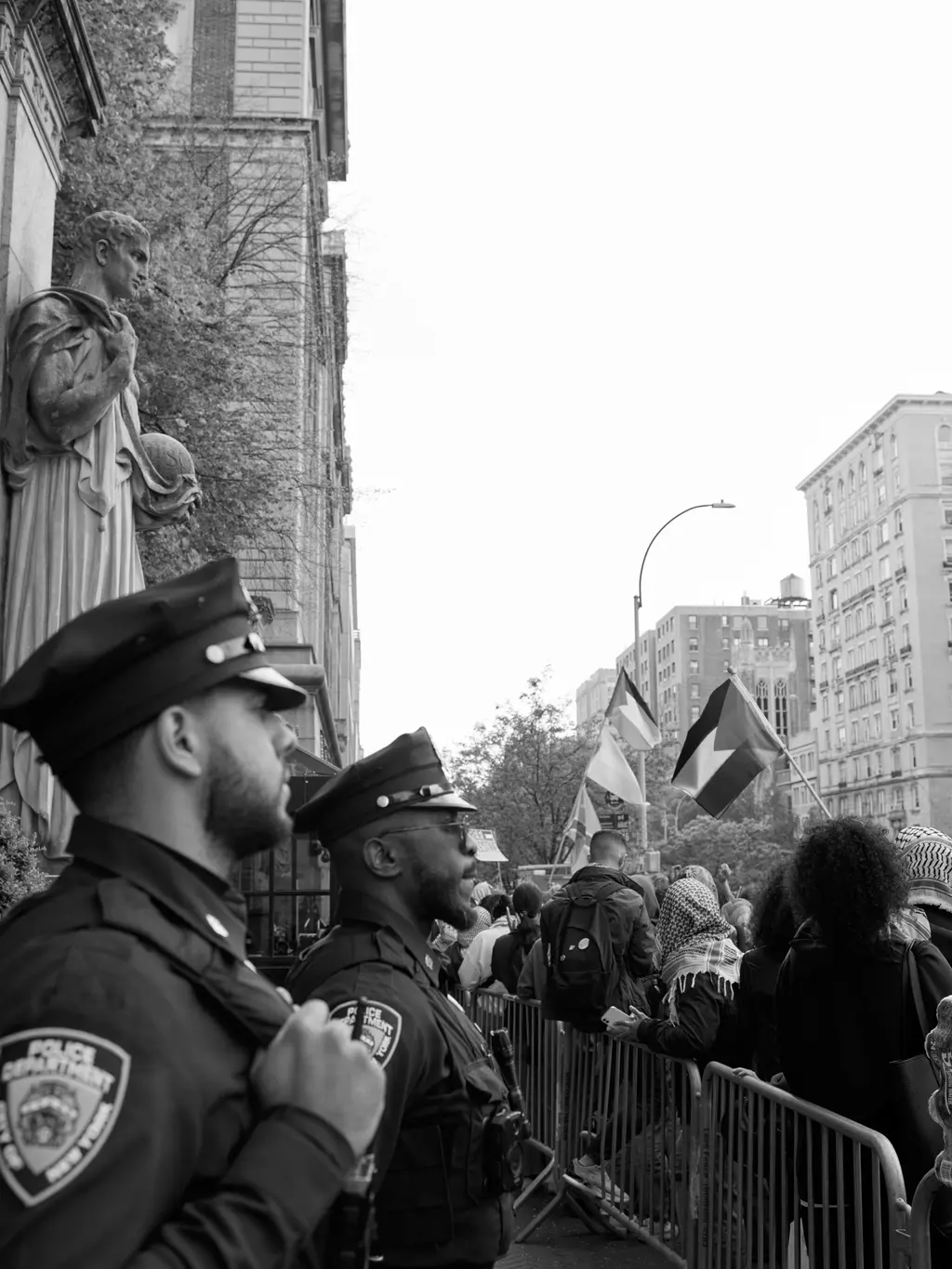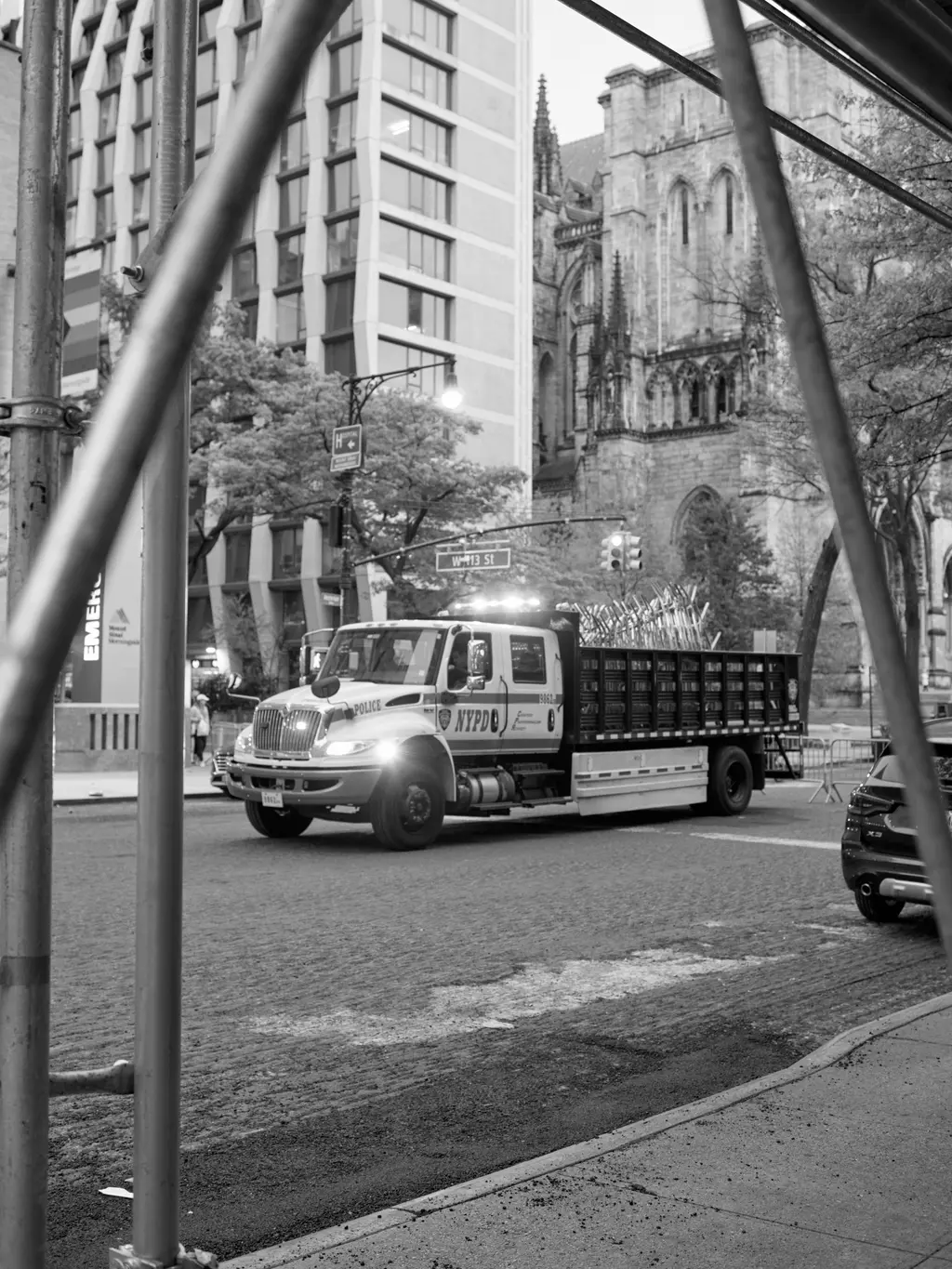Inside the Columbia University campus protest

On Tuesday, we spoke to students in New York about why they’re demonstrating. Hours later, officers in riot gear arrested dozens of protesters.
Society
Photography: Rochelle Marie Adam
On 17th April, students at New York’s Columbia University set up tents in protest against Israel’s assault on Gaza; part of a wave of demonstrations that have swept American universities over the past few weeks.
Police tried – and failed – to clear the encampment not long after the protest started. But two weeks later, they arrived in force, in riot gear. Almost 300 people were arrested at both Columbia and nearby City University of New York. It’s part of a nationwide crackdown on campus protest that has resulted in scenes of violence not witnessed on American universities since the anti-Vietnam War demonstrations of the late ’60s and early ’70s – not least at Columbia in 1968.
These are the images of a peaceful protest that was, only a few hours later, brutally suppressed by riot police. Here, some of the demonstrators told us why they’re protesting.
Erynn, 23

“I am protesting because, as a Black woman, I think that noone is free until we’re all free. I actually did not learn about the Palestinian cause until last October, but I immediately educated myself and found the parallels between Black people in America and Palestinians in Gaza. It was a cause that spoke to me, and I’ve been at protests taking photos and writing about it ever since.
“We’ve seen so many campuses across the US start encampments for Gaza and, at almost all of these universities, the administration is not standing with the students. It creates a huge divide and makes people not want to go to these universities. Columbia was one of my top choices for grad school, but now this has deterred me from ever wanting to attend Columbia at all.”
Noah*, 22

“I’m supposed to be graduating this year. I’m protesting because I believe in a free Palestine. At Columbia, they have a room dedicated to [Palestinian-American philosopher and academic] Edward Said, classes dedicated to decolonisation and all of these academic theories. As a Jewish person, I felt like I had some sort of personal responsibility to speak up when I thought that something was wrong.
“In terms of the school, it’s absolutely ridiculous that [Columbia is] investing [in companies doing business with Israel, such as Amazon and Google, or in the country]. I think the student movement is completely reasonable in its request for the university to divest funding. That’s why I am protesting. This is probably the most historically significant thing to happen in my college career – I don’t want to sit out and miss out on it all.”


Manolo, 35

“This new wave of student activism in favour of Palestinian liberation is so important. It connects us with history, pivotal moments when students came together with the rest of society to stand up for what is right. It’s so beautiful to see folks from this generation firmly say: ‘The suspensions [from university] don’t matter, the threat of the National Guard coming in doesn’t even matter, we’re still gonna stay in encampments.’ That stands in line with decades of revolutionaries who care about justice.”
Blue*

“It’s really hypocritical of the university to have capitalised on the 1968 protest for so long as part of its identity as a protest university. They talk all the time about how they support freedom of speech and the students’ right to protest. And yet, when that situation happens again, they come at it with the same force and disciplinary action – all of which they’ve criticised themselves for [in the past]. It’s part of this larger tendency of Columbia and other institutions to be pro- every civil rights movement, except for the one that’s currently happening.”
* Names have been changed.



